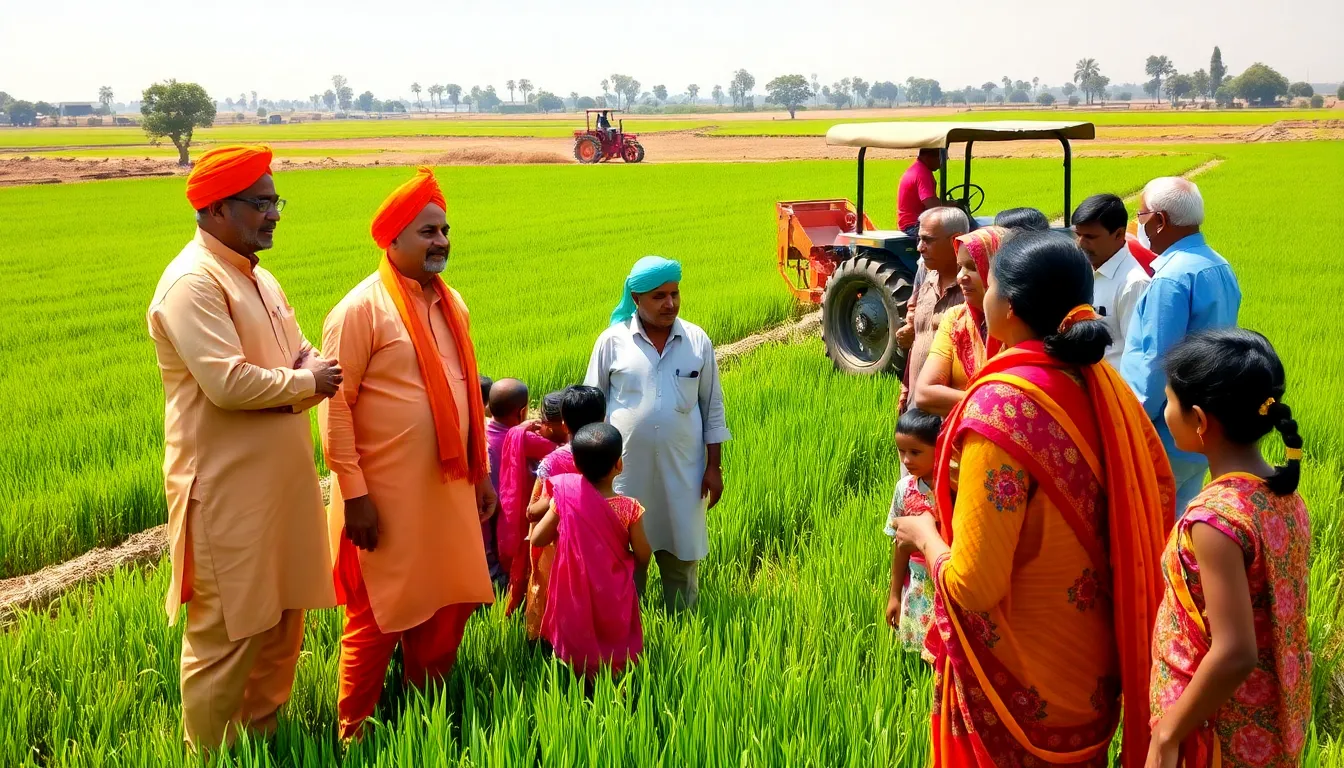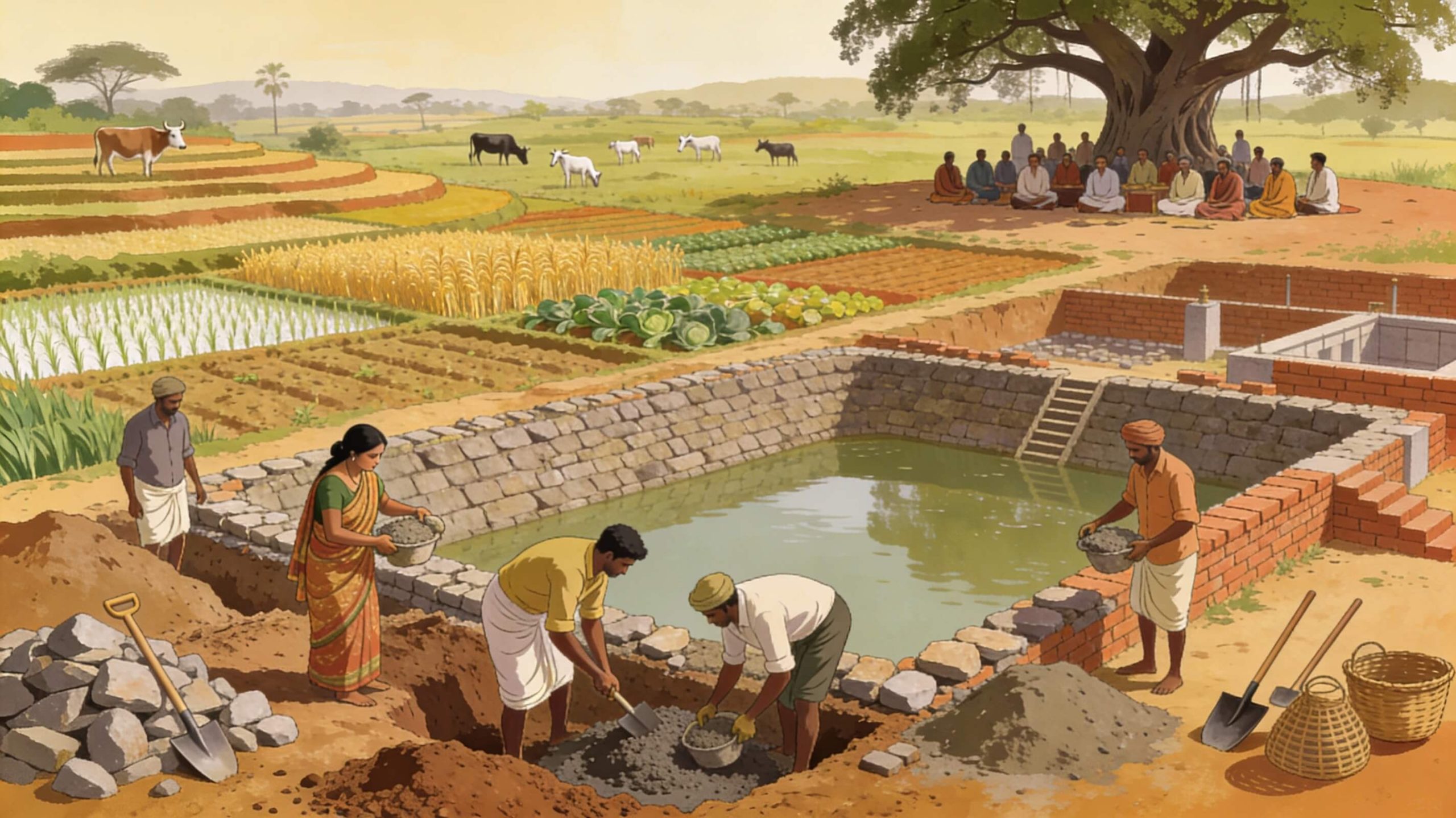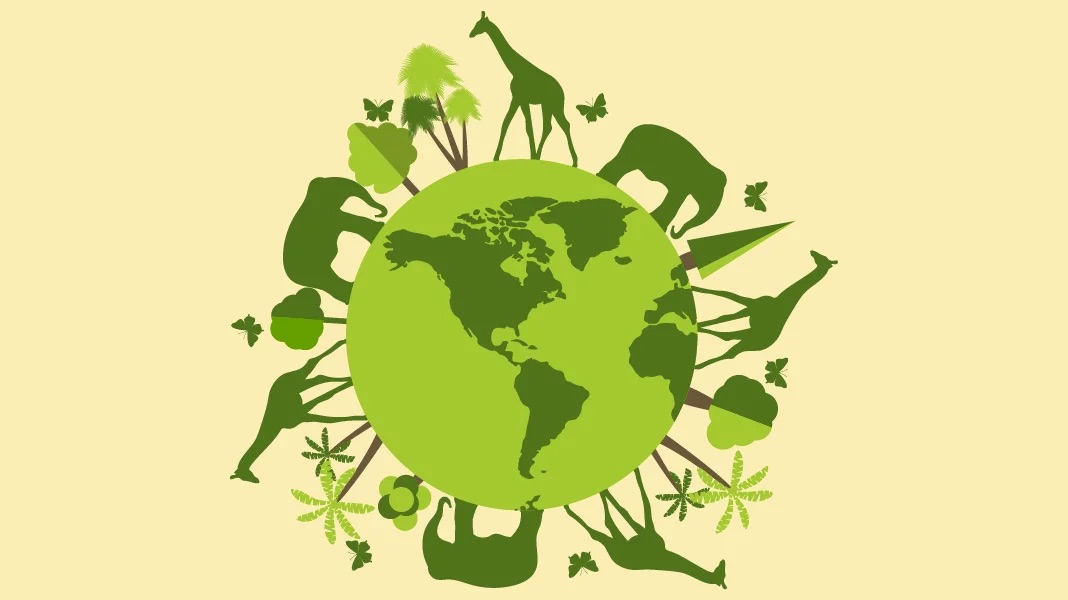On the eighth day of the Viksit Krishi Sankalp Abhiyan (VKSA) 2025, Indian Agriculture Minister Shivraj Singh Chouhan visited Punjab to connect directly with farmers. This initiative aims to enhance agricultural practices by bringing scientific knowledge to the farming community.
During his visit to Patiala, Chouhan praised Punjab’s role as the food bowl of India, highlighting its significant contribution to the nation’s food security. He referred to Punjab as “the land that fills India’s granaries.” The Minister participated in demonstrations of modern farming technologies, including a remote-controlled paddy transplanting machine. This innovative tool can transplant paddy over four acres in just one day, saving time and labor.
Chouhan also drove a tractor to understand the challenges farmers face. He stressed the importance of modern techniques like direct seeding of rice (DSR), which uses less water and reduces costs. Farmers reported that yields remain consistent with DSR, making it a favorable option.
Experts at the event shared valuable insights on crop planning, pest management, and government schemes aimed at sustainable agriculture. Over 670 farmers attended interactions with scientists who provided tailored advice on improving productivity while considering local conditions.
The VKSA campaign, launched on May 29, 2025, aims to reach every part of India. It mobilizes 16,000 scientists to engage with farmers, providing knowledge and support. The goal is to empower farmers with better access to technology and information on government schemes.
Chouhan reiterated the government’s commitment to enhancing agricultural productivity. He discussed six key objectives: improving productivity, reducing costs, ensuring fair prices, compensating for crop losses, encouraging crop diversification, and preserving natural resources.
He recognized the need for crop diversification, urging farmers to explore alternatives that are more profitable and consume less water. He encouraged the cultivation of fruits, vegetables, and other crops while maintaining the traditional wheat and paddy cycles.
The Minister also addressed concerns about water usage in agriculture, particularly in light of the Indus Waters Treaty. He expressed hope that the resources from the Indus, Jhelum, and Chenab rivers would benefit Indian farmers, especially in Punjab, Haryana, and Rajasthan.
Throughout the interaction, farmers voiced their challenges, including issues with minimum support prices (MSP) for alternative crops. Chouhan assured them the government would address these concerns, emphasizing that farmers should not be compelled to sell their produce below MSP.
Experts highlighted the importance of balanced pesticide use, as excessive application can raise costs and harm crop quality. They also stressed the need for hygiene in livestock management and the proper use of milking machines.
In conclusion, the VKSA campaign represents a significant effort by the government to bring science closer to agriculture. By fostering communication between scientists and farmers, it aims to improve agricultural practices and ensure the prosperity of the farming community. Chouhan reaffirmed his commitment to serving farmers, stating that enhancing agricultural production is his highest duty.
As the Viksit Krishi Sankalp Abhiyan continues, it is expected to bring about positive changes in Indian agriculture, promoting sustainability and self-reliance among farmers.





